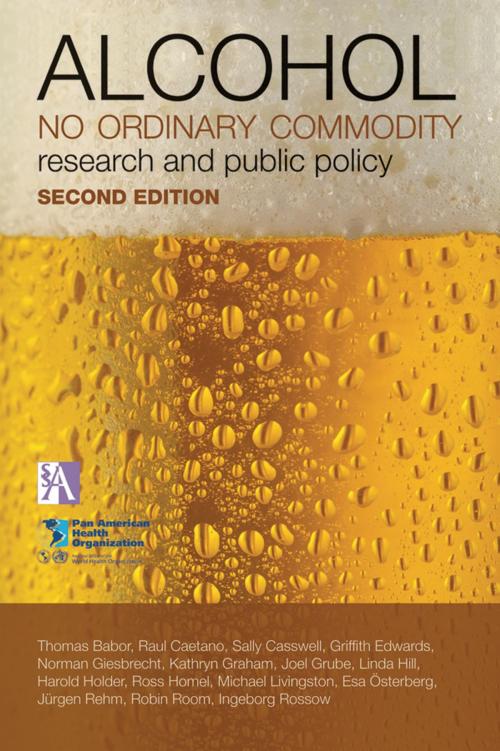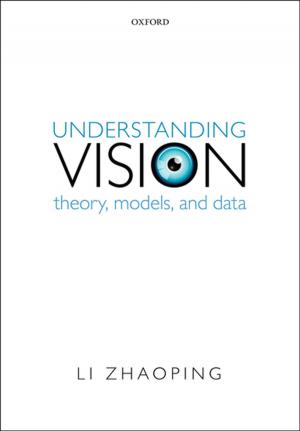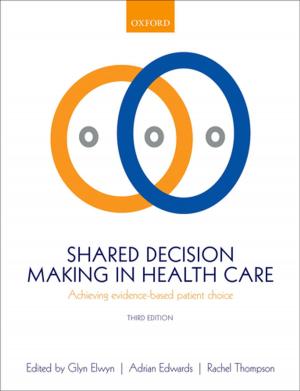Alcohol: No Ordinary Commodity
Research and Public Policy
Nonfiction, Reference & Language, Law, Medical Law & Legislation, Health & Well Being, Medical, Reference, Public Health| Author: | ISBN: | 9780191008122 | |
| Publisher: | OUP Oxford | Publication: | February 25, 2010 |
| Imprint: | OUP Oxford | Language: | English |
| Author: | |
| ISBN: | 9780191008122 |
| Publisher: | OUP Oxford |
| Publication: | February 25, 2010 |
| Imprint: | OUP Oxford |
| Language: | English |
Alcohol: No Ordinary Commodity - Research and Public Policy Second Edition is a collaborative effort by an international group of addiction scientists to improve the linkages between addiction science and alcohol policy. It presents, in a comprehensive, practical, and readily accessible form, the accumulated scientific knowledge on alcohol research that has a direct relevance to the development of alcohol policy on local, national, and international levels. It provides an objective analytical basis on which to build relevant policies globally and informs policy-makers who have direct responsibility for public health and social welfare. By locating alcohol policy primarily within the realm of public health, this book draws attention to the growing tendency for governments, both national and local, to consider alcohol misuse as a major determinant of ill health, and to organize societal responses accordingly. The scope of the book is comprehensive and international. The authors describe the conceptual basis for a rational alcohol policy and present new epidemiological data on the global dimensions of alcohol misuse. The core of the book is a critical review of the cumulative scientific evidence in seven general areas of alcohol policy: pricing and taxation, regulating the physical availability of alcohol, modifying the environment in which drinking occurs, drinking-driving countermeasures, marketing restrictions, primary prevention programs in schools and other settings, and treatment and early intervention services. The final chapters discuss the current state of alcohol policy in different parts of the world and describe the need for a new approach to alcohol policy that is evidence-based, realistic, and coordinated. It will appeal to those involved in both addiction science and drug policy, as well as those in the wider fields of public health, health policy, epidemiology, and practising clinicians. A companion volume published by Oxford University Press, 'Drug Policy and the Public Good', is also available.
Alcohol: No Ordinary Commodity - Research and Public Policy Second Edition is a collaborative effort by an international group of addiction scientists to improve the linkages between addiction science and alcohol policy. It presents, in a comprehensive, practical, and readily accessible form, the accumulated scientific knowledge on alcohol research that has a direct relevance to the development of alcohol policy on local, national, and international levels. It provides an objective analytical basis on which to build relevant policies globally and informs policy-makers who have direct responsibility for public health and social welfare. By locating alcohol policy primarily within the realm of public health, this book draws attention to the growing tendency for governments, both national and local, to consider alcohol misuse as a major determinant of ill health, and to organize societal responses accordingly. The scope of the book is comprehensive and international. The authors describe the conceptual basis for a rational alcohol policy and present new epidemiological data on the global dimensions of alcohol misuse. The core of the book is a critical review of the cumulative scientific evidence in seven general areas of alcohol policy: pricing and taxation, regulating the physical availability of alcohol, modifying the environment in which drinking occurs, drinking-driving countermeasures, marketing restrictions, primary prevention programs in schools and other settings, and treatment and early intervention services. The final chapters discuss the current state of alcohol policy in different parts of the world and describe the need for a new approach to alcohol policy that is evidence-based, realistic, and coordinated. It will appeal to those involved in both addiction science and drug policy, as well as those in the wider fields of public health, health policy, epidemiology, and practising clinicians. A companion volume published by Oxford University Press, 'Drug Policy and the Public Good', is also available.















